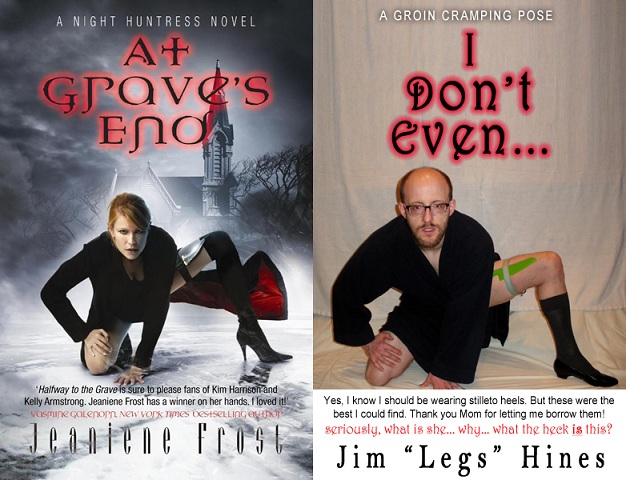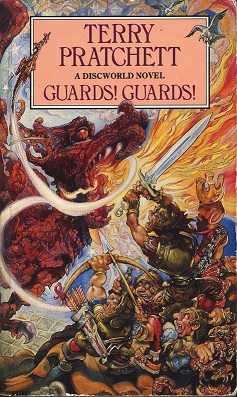
A while back, fantasy author with a sense of humour Jim Hines did two posts mocking (urban) fantasy covers. In the first one he imitated cover poses female heroes found themselves in, in the second he took on their male counterparts. That made him as famous around the internet as John Scalzi is for taping bacon to a cat. Now he decided to harness his powers for good, doing a series of cover poses for charity:
Aicardi Syndrome is incurable. It’s hard to diagnose. It’s scary and overwhelming, and most people have never heard of it.
The Aicardi Syndrome Foundation is pretty much the only source in the United States for funding into research on this condition. The foundation also funds a family conference every two years, paying for hotel rooms, flying in researchers, and even covering many of the meals. It unites families fighting this disease, connecting them to a network of support they might otherwise never find.
I’m asking people to donate to the Aicardi Syndrome Foundation. In exchange, I will give you what the internet has deemed my most important contribution to society: ridiculous cover poses. All you have to do is email me at ASF@jimchines.com letting me know how much you donated. If you give more than $25, please include a copy of your receipt from the foundation.
Responses have been overwhelming, which has led to Jim’s first pose as shown above and also meant that he reached one of his first stretch goals: $1,000 in donations means a pose off with John Scalzi. Which is better: Jim’s specially shaved legs or Scalzi’s frighteningly blonde wig and little black dress? You decide! Btw, there’s still time to donate and one of the next goals is a group pose including Charlie Stross…
